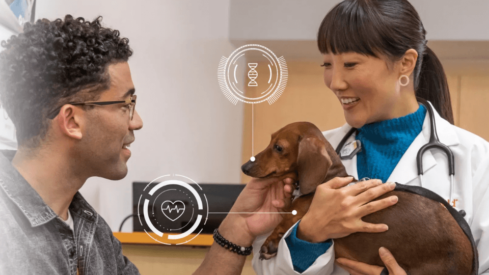How does Mars’ pet biobank work?

The project brings together clinical, genetic, and lifestyle pet data and reunited its first 500 pets to participate in a 10-year study.
The research project of the pet food manufacturer aims to be the largest research of its kind in the world, bringing together clinical, genetic, and lifestyle data from 20,000 cats and dogs in the future. Its mission is to help to improve disease diagnosis and prevention.
Biobanks are not a new strategy for pet researchers and work as repositories where biological samples, images, and other data are stored.
According to the pet manufacturer, what makes their Biobank different is that they “welcome dogs and cats of all breeds and breed makeups.”
“Existing pet biobanks often study certain breeds or diseases, which is why our study has the potential to transform pet care for all dogs and cats in the future,” a company spokesperson told GlobalPETS.
Enrolling cats and dogs
In this first phase, US pet parents can enroll healthy cats and dogs older than six months and younger than 10 years old. All enrolled pets receive an activity monitor and are screened yearly by collecting fecal and blood samples.
“These first few months are really about getting the enrollment process embedded in the participating veterinary hospitals as we look to ramp up enrollment over the coming years,” the spokesperson commented.
Mars intends to expand its recruitment to other countries “in a short period of time.”
Objective: 1,000 pets
Samples are collected from the same individual at different times. This type of data can generate new insights by tracking changes over time in healthy pets and those developing illnesses.
The company expects to enroll up to 1,000 dogs and cats in the near future, where scientists will find ways to predict and prevent common illnesses. With 5,000 animals, it would be possible to analyze rare conditions and up to 10,000 very rare illnesses.
“We aim for this biobank to drive breakthroughs in scientific knowledge for the future of pet health,” said Mars Petcare President Poul Weihrauch.
